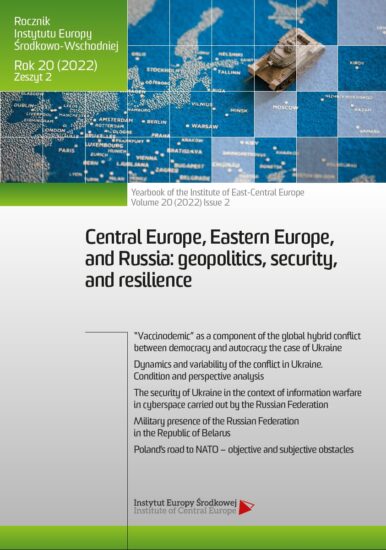Poland’s road to NATO
– objective and subjective obstacles
Poland’s road to NATO
– objective and subjective obstacles
Author(s): Józef M. FiszerSubject(s): Politics / Political Sciences, Politics, Government/Political systems, Security and defense
Published by: Instytut Europy Środkowej
Keywords: Poland; NATO; the North Atlantic Alliance; accession; Russia; the West.
Summary/Abstract: The paper describes the Polish road to NATO which, contrary tothe West’s expectations and promises, was long and bumpy. The author presents and analyses various obstacles that hindered Polish accession to NATO.The author divides such challenges into objective and subjective barriers, butusing other criteria, the author points to specific geopolitical, international,political, social, and military conditions. Furthermore, the author presentsthe stances of different countries on the enlargement of the North AtlanticAlliance after the Cold War, particularly the attitudes of the USA, Germany,France, the USSR, and Russia as these states were either more or less supportive of Polish efforts to join NATO or not supportive at all. In 1989-1999 the Alliance’s position was slowly evolving from being initially unwilling to supportPoland’s accession to NATO to being sympathetic towards it.In the paper, the author poses a few research questions on the above-mentioned obstacles on the Polish road to NATO and a few theses and hypotheses. The author states that primarily the USSR, later the Russian Federation,was against Poland’s accession to NATO. Initially, the West also opposed it.After 1989, its priority was to reunite Germany and stabilize military relationswith Moscow through the Treaty on Conventional Armed Forces in Europe(CFE) and the elimination of Soviet military bases in post-communist coun- tries of Central and Eastern Europe.
Journal: Rocznik Instytutu Europy Środkowo-Wschodniej
- Issue Year: 20/2022
- Issue No: 2
- Page Range: 47-73
- Page Count: 27
- Language: English

